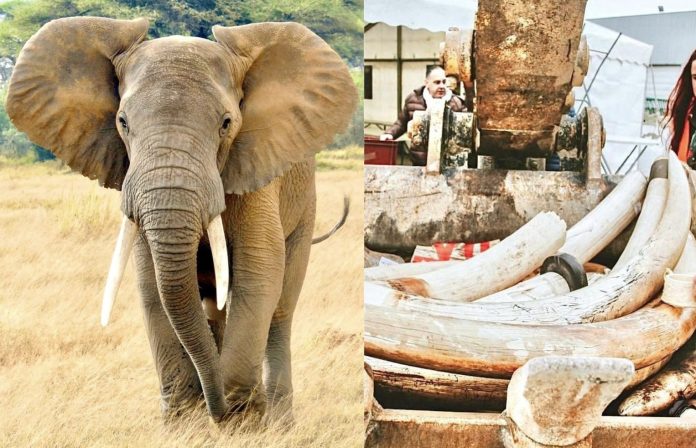
1.8 Tons Of Ivory Destroyed In France Following Successful Campaign Encouraging People To Hand Over Ivory Items
You can help all animals and our planet by choosing compassion on your plate and in your glass. #GoVeg
RELATED ARTICLES
Oakland Zoo Makes The Momentous Decision To Relocate “Osh” To The Elephant Sanctuary
Photo credit: Oakland Zoo Facebook
In a significant milestone for elephants, In Defense of Animals is celebrating the arrival of Osh, an African elephant, at...
Amazon Faces Growing Backlash Over Selling Cruel Donkey-Hide Gelatin Products
Animal welfare advocates representing millions of people around the world gathered at Amazon HQ2 to hand-deliver over 370,000 petition signatures demanding that Amazon ban...
Man Charged With A Felony For Leaving His Dog Tied To A Fence During Hurricane Milton
A 23-year-old man has been charged with aggravated animal cruelty, a third-degree felony, after footage of his abandoned dog went viral just before Hurricane...
Popular stories
News
Historic Resolution Linking Animal Welfare & The Environmental Crisis Passed By Nearly 200 Countries At The UN Environment Assembly In Kenya
Vital links between animal welfare and the environmental crises were formally recognized for the first time at a global level after the adoption of...
News
Shocking Video Of A Bull With A Broken Leg Dragged From George Mason University EagleBank Arena; Take Action Today!
Heartbreaking video footage has emerged from a September 24th event at George Mason University’s EagleBank Arena of a bull severely breaking his leg and being dragged...
Industry News
Breaking! Borden Dairy Becomes One Of The Latest & Largest American Milk Producers To File For Bankruptcy
Another one of America's oldest milk producers, Borden Dairy, announced that it is filing for bankruptcy yet is still going to continue operating.
As previously...


